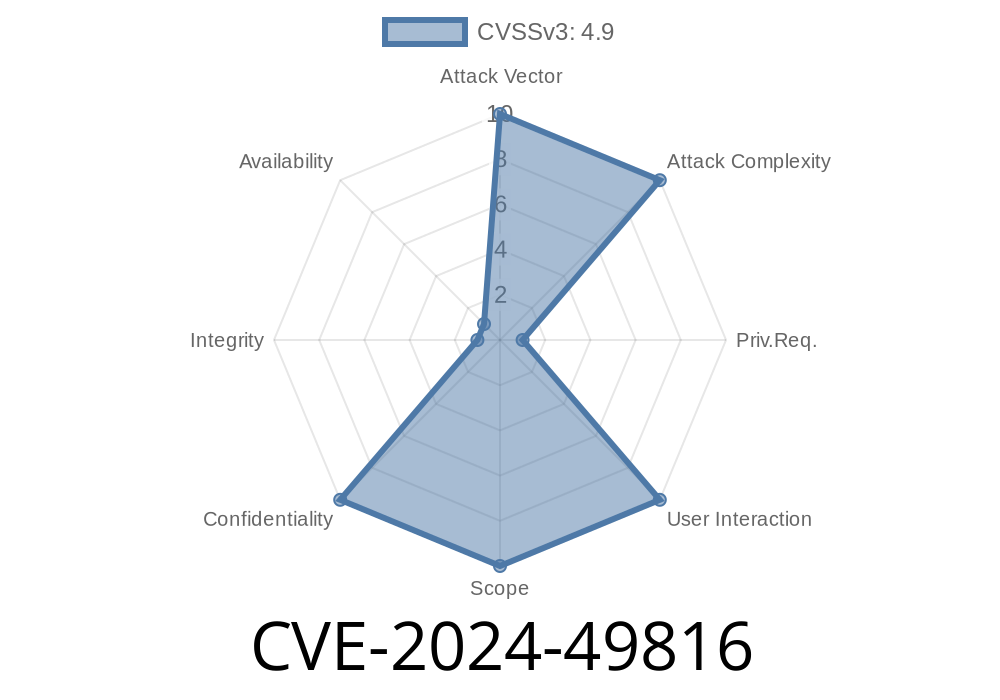A new security vulnerability, identified as CVE-2024-49816, has been discovered in IBM Security Guardium Key Lifecycle Manager (GKLM) versions 4.1, 4.1.1, 4.2., and 4.2.1. This issue involves the software logging sensitive information that a local privileged user could access. In this article, we’ll break down what this means, why it matters, and how to protect your systems—using plain, straightforward language.
What is IBM Security Guardium Key Lifecycle Manager?
IBM Security Guardium Key Lifecycle Manager (GKLM) is a solution to manage encryption keys securely. Companies use it to generate, store, distribute, and back up cryptographic keys – critical to data security for things like databases, storage disks, and applications.
About the Vulnerability
CVE-2024-49816 is a vulnerability where GKLM writes potentially sensitive information into its log files. These logs can sometimes include data that should stay confidential, like cryptographic key details, users' information, or other secrets involved in the secure operation of the system.
Why is this Critical?
- Logs are often overlooked: System logs are meant for debugging, but sometimes they end up storing more than intended.
- Local privileged users (like admins) can read these logs. In the wrong hands, this exposed info could be used to compromise the system’s security.
Let’s see a simplified code snippet to understand what’s happening
// Example from a Java-based logging scenario
public void createKey(String keyName, String keyValue) {
// ... key creation logic ...
logger.info("Created key: " + keyName + " with value: " + keyValue);
}
Problem:
Here, the full key value is written to the log file. If someone with access to the logs looks here, they can read the sensitive key value that was just created.
GKLM logs the operation with full details (possibly including the sensitive key data).
3. A local privileged user (like a server admin or anyone with root/administrator access) reads the log files.
The attacker extracts the sensitive information (keys, credentials, etc.) from the logs.
5. They use the information to access encrypted data or impersonate users, depending on what's been leaked.
> Note: This kind of attack generally requires local access and high privileges. Still, it’s a big risk—especially in shared or poorly segmented environments.
IBM's Official Fixes and Recommendations
IBM has released patches. If you’re using one of the affected versions, upgrading is the best way to stay protected.
Official IBM Security Bulletin:
https://www.ibm.com/support/pages/node/7133391
References
- IBM Security Bulletin for CVE-2024-49816
- National Vulnerability Database: CVE-2024-49816
- IBM Security Guardium Key Lifecycle Manager Documentation
Final Thoughts
While this vulnerability doesn’t let attackers gain access remotely, it exposes secrets to anyone with privileged local access, increasing the risk in environments where admins and operators have overlapping responsibilities or in situations where insider threats are a concern.
Update your systems. Audit your logs. Stay vigilant. Simple steps, but they make a world of difference in staying secure.
Have more questions or want tailored guidance for your organization?
Check out IBM Support or your favorite security forum for real-world advice and fixes.
Timeline
Published on: 12/17/2024 18:15:23 UTC
